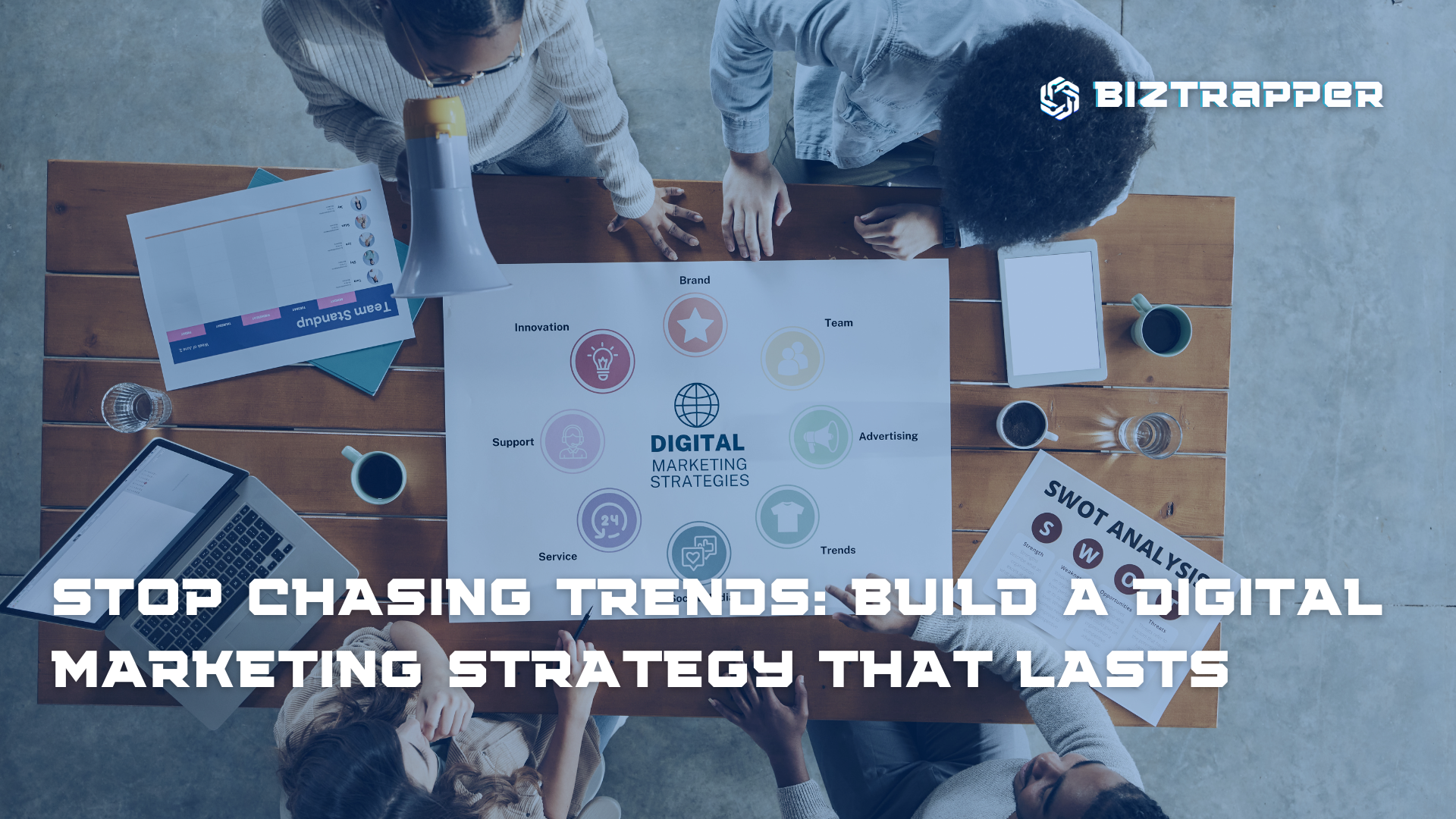To succeed long-term, your brand needs more than trending hashtags — it needs a solid digital marketing strategy that’s built to last.
The Problem with Trend-Chasing
Trends can be exciting, and yes — they sometimes bring short-term attention. But without a clear strategy, jumping from one tactic to another leads to:
-
Inconsistent messaging
-
Poor ROI
-
Burnout for your marketing team
-
Confused customers
Short-term wins don’t equal sustainable growth. A well-defined, long-term strategy gives your brand structure, direction, and measurable results.
What Makes a Digital Marketing Strategy “Sustainable”?
A lasting strategy isn’t one-size-fits-all. But it usually includes:
-
Clear goals: Do you want brand awareness, leads, sales, or customer loyalty?
-
Understanding your audience: What are their problems, and where do they spend their time online?
-
Content pillars: Focused themes that guide your blog, social media, email, and SEO content.
-
Channel strategy: Not every brand needs to be on every platform. Focus where it matters.
-
Analytics & feedback loops: You can’t improve what you don’t measure.
Trends Have a Place — But Don’t Let Them Lead
Here’s the key: You can experiment with trends, but they should support your strategy — not drive it. Use them as tools to amplify your message, not distract from it.
For example:
-
Use a trending audio clip only if it fits your message.
-
Try a new AI tool only if it boosts your existing workflow.
-
Join a social trend only if your audience actually cares about it.
5 Tips to Build a Long-Term Digital Marketing Strategy
-
Start with your business goals — and reverse-engineer your marketing plan from there.
-
Know your audience deeply — not just their age, but their pain points and motivations.
-
Create valuable content consistently — not just content that “performs” for a day.
-
Invest in SEO and email marketing — high ROI channels that compound over time.
-
Document your strategy — so your team knows where you’re headed (and why).
Final Thoughts
Digital marketing trends come and go. What lasts is clarity, consistency, and customer-first thinking.
So instead of chasing the next big thing, focus on building a system that grows with your brand — year after year.






